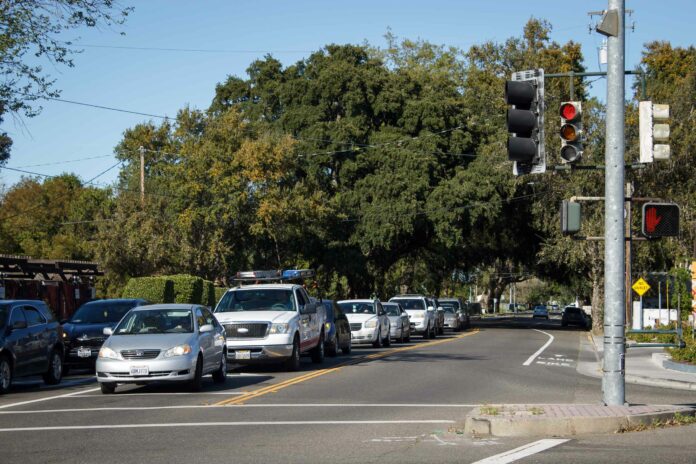Environmental, traffic concerns to be resolved before construction on Lincoln40, Nishi begin
Lawsuits against student housing projects — Lincoln40 Apartments and Nishi Student Apartments — are holding construction in limbo until the court’s ruling. Amid a housing shortage for UC Davis students, those opposed to the developments claim that due to environmental and health factors as well as cumulative traffic conditions, the locations are unfit for students and will negatively impact the city.
The lawsuits were filed under the provisions of the California Environmental Quality Act. Patrick Soluri, the attorney of the litigation, revealed that the petitions received support from local residents, but many were unwilling to be named in the lawsuit in fear of retribution. California-licensed architect, Susan Rainier, is one of two individuals named in the Lincoln40 lawsuit and part of the unincorporated association named in the Nishi lawsuit.
“Those of us who oppose the Lincoln40 and Nishi projects are not opposed to more housing being built, especially student housing,” Rainier said. “We are opposed to the way it has been approved and, now, how it’s been done with the plan made by UCD and the city.”
Lincoln40 was approved over a year ago and was originally projected to be completed in fall of 2020 in order to service students looking for housing for the coming school year; however, construction will likely start this summer at the earliest, if settled in court. Alisha Hacker, a second-year political science-public service major at UC Davis, articulated the urgent need for more housing to accommodate the growing student population.
“These lawsuits threaten new student housing projects that if built would elevate a large burden on Davis students who frequently struggle to find housing in the city,” Hacker said via email. “With 7% or about 2,300 students at UC Davis reporting being homeless for some period of time while at Davis, any additional housing would greatly benefit students and their ability to thrive while attending UC Davis.”
Environmentally, Rainier expressed concerns with the placing of Linoln40 in an existing high-occupancy area. She also noted how the Nishi project is surrounded by the I-80 freeway on one side and the Amtrak railroads on the other, noting the dangers of toxic particulates from the roads.
“The City of Davis leadership is incompetent,” Rainier said. “They have not conducted enough analysis of the cumulative effects of mega dorms on city systems and services, such as traffic, noise, circulation, waste water propensity and police.”
While statutorily exempt, the City conducted an Environmental Impact Report, which Judge Stephen Mock deemed sufficient at the hearing for the Lincoln40 project, according to The Davis Vanguard.
Paul Gradeff, the managing director of HighBridge Properties, first conceived the development in 2014, and the project was approved by the city over a year ago. During the lawsuit, construction was ceased, leaving the property untouched while accumulating high costs.
“We have had exhaustive conversations with seven planning commissions, and the city performed an Environmental Impact Report,” Gradeff said. “Of course we’re very concerned about our impacts on the environment, so we have methodically gone through each piece that we have to to make sure we’re not causing any harm.”
The opposition argues that the EIR is not sufficient, specifically with regard to traffic conditions.
“One of the legal arguments has to do with the city’s refusal to adequately analyze cumulative traffic conditions and mitigate cumulative traffic conditions,” Soluri said. “There is going to be a lot more cars on the road under cumulative conditions than estimated in the draft EIR.”
According to Soluri, the sides are still waiting for results from the hearing on the merits regarding the Lincoln40 project, which happened earlier in April, and the Nishi project is expected to go to court in May.
If allowed to continue, the Lincoln40 project will be built to provide student-oriented housing, allowing students to lease by the bed. Gradeff noted the development’s proposed affordable housing program for students, as well as amenities such as study areas, a pool area, game rooms and security.
“This lawsuit is impacting the students directly,” Gradeff said. “It’s impacting no one else but the students. [Lincoln40] is going to be a great environment for students to live and study, and recreate, socialize and have a wonderful community there. That’s so desperately needed in Davis.”
Written by: Renee Hoh — city@theaggie.org






“many were unwilling to be named in the lawsuit in fear of retribution.”
Classic NIMBYs.
“There is going to be a lot more cars on the road under cumulative conditions than estimated in the draft EIR.”
If they don’t live here, they’ll live in Woodland or Stockton and drive. How’s your traffic now? Oh, by the way, Level of Service is no longer allowed as a CEQA impact under California law. This lawsuit is meritless.
We need CEQA reform for infill projects.